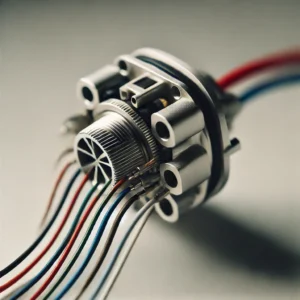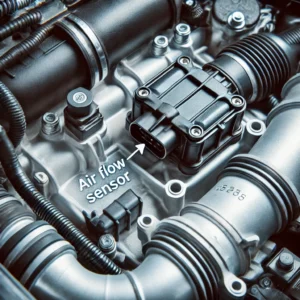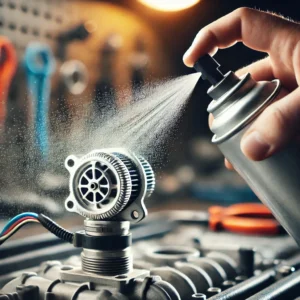In the world of auto repairs, understanding what a mass air flow sensor does is key to keeping your vehicle running smoothly. This essential device measures the amount of air entering the engine, helping to ensure optimal performance and fuel efficiency. By accurately monitoring airflow, the mass air flow sensor allows the engine to adjust the fuel injection accordingly, which is vital for maintaining a smooth and efficient ride.

Without it, your car might experience rough idling, poor acceleration, or even engine stalling, making it a critical component for reliable performance. Knowing the role of a mass air flow sensor can make a big difference for both car owners and enthusiasts. It’s not just about improving your driving experience but also about extending the life of your engine.

When the sensor works correctly, it helps to avoid issues that might otherwise lead to costly auto repairs. Regular maintenance and timely replacement of a faulty mass air flow sensor can prevent bigger problems down the road. So, keeping an eye on this small but important component can save you time and money in the long run, ensuring your vehicle remains in top condition for Auto Repair Hurst TX
How Does a Mass Air Flow Sensor Work?
A mass air flow sensor, often abbreviated as MAF sensor, is strategically positioned within the air intake system of a vehicle. Its primary function is to measure the mass of air flowing into the engine’s combustion chambers. This measurement is achieved through various techniques, such as hot-wire or hot-film technology, which utilizes the principle of heat transfer to detect the air’s density and velocity.
The sensor typically consists of a sensing element, which is exposed to the incoming air stream. As air passes over this element, it causes a change in its temperature or resistance, which is then converted into an electrical signal. This signal is transmitted to the vehicle’s engine control unit (ECU), providing crucial information about the amount of air entering the engine.
Mass Air Flow Sensor in a Vehicle’s Performance
The mass air flow sensor plays a pivotal role in optimizing a vehicle’s performance and fuel efficiency. Its primary responsibilities include:
Fuel Delivery Regulation
The ECU relies on the mass air flow sensor to determine the exact fuel needed for efficient combustion. By measuring incoming air accurately, the ECU adjusts the fuel injection system, ensuring the ideal air-fuel ratio for smooth and efficient engine performance.
Engine Timing Optimization
The mass air flow sensor data helps the ECU calculate the best ignition timing. Proper timing maximizes engine power and minimizes emissions, ensuring your engine runs powerfully and cleanly.
Emissions Control
By managing the air-fuel ratio precisely, the mass air flow sensor helps reduce harmful emissions, keeping the environment cleaner and ensuring your vehicle complies with emission regulations.
Turbocharger and Supercharger Regulation
In turbocharged or supercharged engines, the mass air flow sensor regulates boost pressure, preventing over-boosting and ensuring efficient operation. Accurate data helps maintain the right pressure levels, enhancing performance and preventing engine damage.
Signs of a Faulty Mass Air Flow Sensor
A malfunctioning mass air flow sensor can have detrimental effects on a vehicle’s performance and fuel efficiency. Some common signs of a faulty mass air flow sensor include:
- Check Engine Light: One of the most obvious indicators is the illumination of the check engine light on the dashboard, indicating a problem with the engine management system.
- Rough Idling or Stalling: If the ECU receives inaccurate air flow data, it can lead to improper fuel delivery, causing the engine to idle roughly or stall unexpectedly.
- Poor Acceleration and Power Loss: With incorrect air-fuel ratios, the engine may experience a noticeable lack of power and sluggish acceleration.
- Increased Fuel Consumption: An inaccurate mass air flow sensor can cause the ECU to deliver too much or too little fuel, resulting in poor fuel economy.
- Failed Emissions Test: Improper air-fuel ratios can lead to increased emissions, causing the vehicle to fail emissions tests.
Benefits of a Well-Functioning Mass Air Flow Sensor
A well-maintained and accurately functioning mass air flow sensor offers numerous benefits for vehicle owners:
Improved Fuel Efficiency
By ensuring precise air-fuel ratios, the mass air flow sensor helps optimize combustion. This leads to better fuel economy, meaning you spend less on fuel and reduce your operating costs over time.
Enhanced Engine Performance
With accurate air flow data, the ECU can fine-tune the engine’s timing and fuel delivery. This maximizes power output and improves overall driving dynamics, providing you with a smoother, more responsive driving experience.
Reduced Emissions
Proper air-fuel management by the mass air flow sensor minimizes harmful emissions. This contributes to a cleaner environment and ensures your vehicle complies with strict emission standards, helping you do your part for the planet.
Prolonged Engine Life
Maintaining the correct air-fuel ratio prevents excessive wear and tear on engine components. This extends the overall lifespan of your engine, reducing the need for costly repairs and replacements in the long run.
Smoother Operation
A well-calibrated mass air flow sensor ensures smooth and consistent engine operation. This minimizes issues like rough idling, stalling, or hesitation during acceleration, making your driving experience more enjoyable and stress-free.
Myths About Mass Air Flow Sensors
Despite their importance, several misconceptions surround mass air flow sensors:
Myth: Mass Air Flow Sensors are Maintenance-Free
Although designed for durability, mass air flow sensors can accumulate contaminants or suffer damage over time. Regular cleaning or replacement may be necessary to ensure optimal performance.
Myth: All Mass Air Flow Sensors are the Same
Different vehicle models and engine types often require specific designs and specifications for their mass air flow sensors. It’s crucial to use the correct replacement part to maintain the proper functioning of the sensor and vehicle performance.
Myth: Mass Air Flow Sensors Only Affect Fuel Economy
While fuel efficiency is important, a malfunctioning mass air flow sensor can impact various aspects beyond just mileage. It can affect engine performance, emissions levels, and overall drivability, making its proper function crucial for vehicle operation.
Cleaning and Maintaining a Mass Air Flow Sensor
Proper maintenance of the mass air flow sensor is crucial for ensuring its longevity and accurate operation. Here are some steps to follow:
Refer to the Vehicle’s Manual
Always consult the manufacturer’s recommendations for cleaning and maintenance procedures specific to your vehicle’s make and model. This ensures you’re following the best practices tailored to your car.
Use Appropriate Cleaning Products
Avoid using harsh chemicals or abrasives that could damage the sensor’s delicate components. Instead, opt for specialized mass air flow sensor cleaners or electronic component cleaners to safely clean the sensor.

Gently Clean the Sensing Element
Use a soft-bristled brush or compressed air to gently remove any debris or contaminants from the sensing element. Be careful not to damage this crucial part of the sensor.
Inspect for Damage
After cleaning, carefully inspect the mass air flow sensor for any signs of physical damage, such as cracks or corrosion. If you find any damage, it’s best to replace the sensor to maintain optimal performance.
Secure Connections
Ensure that all electrical connections and mounting hardware are secure and free from corrosion or damage. Proper connections are essential for the sensor to function correctly.
Regular Maintenance Intervals
Follow the manufacturer’s recommended maintenance intervals for cleaning or replacing the mass air flow sensor. Regular maintenance helps ensure your sensor operates efficiently and prolongs the life of your vehicle.
Upgrading Your Mass Air Flow Sensor for Better Performance
For enthusiasts seeking enhanced engine performance, upgrading to a high-performance mass air flow sensor can be a worthwhile investment. These aftermarket sensors are designed to provide more accurate and responsive airflow measurements, allowing for precise tuning and calibration.
When considering an upgrade, it’s essential to choose a reputable manufacturer and select a sensor specifically designed for your vehicle’s make, model, and engine type. Additionally, it’s recommended to have the new sensor professionally installed and calibrated to ensure optimal integration with the engine management system.
Troubleshooting Your Mass Air Flow Sensor
If you suspect issues with your mass air flow sensor, there are several troubleshooting steps you can take:
Check for Error Codes
Utilize an OBD-II scanner or diagnostic tool to retrieve error codes specifically related to the mass air flow sensor. This diagnostic step is crucial for identifying the exact issue and guiding subsequent troubleshooting actions effectively.
Visually Inspect the Sensor
Examine the mass air flow sensor closely for any visible signs of damage, such as cracks, corrosion, or any accumulation of debris on its sensitive components like the sensing element.
Check Electrical Connections
Ensure that all connections leading to the mass air flow sensor are securely plugged in and free from any corrosion or physical damage that could disrupt electrical signals.
Perform a Resistance Test
Follow the guidelines provided by the manufacturer to conduct a resistance test on the mass air flow sensor using a multimeter. Any variations from the specified resistance values may indicate a malfunctioning sensor.
Replace the Sensor
If the previous steps do not resolve the issue, it may be necessary to replace the mass air flow sensor with a new or refurbished unit recommended by the manufacturer. This ensures optimal performance and accurate airflow readings for your vehicle.
Frequently Asked Questions
What is the difference between a mass air flow sensor and a manifold absolute pressure (MAP) sensor?
A mass air flow sensor measures the actual mass of air entering the engine, while a MAP sensor measures the pressure within the intake manifold, which is used to infer the airflow.
Can a faulty mass air flow sensor cause rough idling or stalling?
Yes, a malfunctioning mass air flow sensor can provide inaccurate air flow data to the ECU, leading to improper fuel delivery and causing rough idling or stalling issues.
How often should a mass air flow sensor be replaced?
The replacement interval varies based on the manufacturer’s recommendations and driving conditions. Generally, mass air flow sensors should be replaced every 60,000 to 100,000 miles or as recommended in the vehicle’s maintenance schedule.
Can a dirty air filter affect the mass air flow sensor’s performance?
Yes, a clogged or dirty air filter can restrict air flow, causing the mass air flow sensor to provide inaccurate readings to the ECU.
Can a mass air flow sensor be repaired or cleaned?
In some cases, a mass air flow sensor can be cleaned using specialized cleaning products and techniques. However, if the sensor is physically damaged or beyond cleaning, replacement is recommended.
Conclusion
Regular checks and timely replacements can save you from unexpected breakdowns and costly auto repairs. At Pit Stop Xpress, we understand the importance of a well-maintained mass air flow sensor for your vehicle’s performance and fuel efficiency. Our expert team ensures your car runs smoothly, providing peace of mind on every journey. Trust Pit Stop Xpress to keep your vehicle in top shape and drive with confidence!
Don’t let a faulty mass air flow sensor disrupt your drive. Whether it’s improving fuel efficiency or enhancing engine performance, Pit Stop Xpress has you covered. Our skilled technicians diagnose and fix issues promptly, keeping your vehicle in top shape.
Visit Pit Stop Xpress for all your auto repair needs. From routine maintenance to addressing specific issues like mass air flow sensors, we handle it all with expertise and care. Trust Pit Stop Xpress to keep your vehicle running at its best, so you can enjoy the road ahead without any worries. Drive confidently knowing Pit Stop Xpress has got you covered!
End Note
Consistent maintenance and timely replacements can prevent unexpected breakdowns and expensive repairs. At Pit Stop Xpress, we know how important a well-maintained mass air flow sensor is for your car’s performance and fuel efficiency. Our expert team ensures your car runs smoothly, giving you peace of mind on every journey.
For the best auto repair & maintenance services, look no further than Pit Stop Xpress. Whether you need routine maintenance, state inspections, or specialized repairs, our skilled technicians are ready to help. Check out our full range of services here and see why so many drivers trust us.
If you want to see what we do, take a peek at our gallery to see our team in action and the quality of work we deliver. Learn more about our commitment to excellence on our About Us page.
Don’t let car issues slow you down. Reach out to us through our Contact Us page or visit our website for more info. At Pit Stop Xpress, we’re all about keeping you on the road with confidence. Discover the difference with Pit Stop Xpress, where your car gets the best care possible. Visit us at Pit Stop Xpress and experience top-notch auto repair & maintenance!


